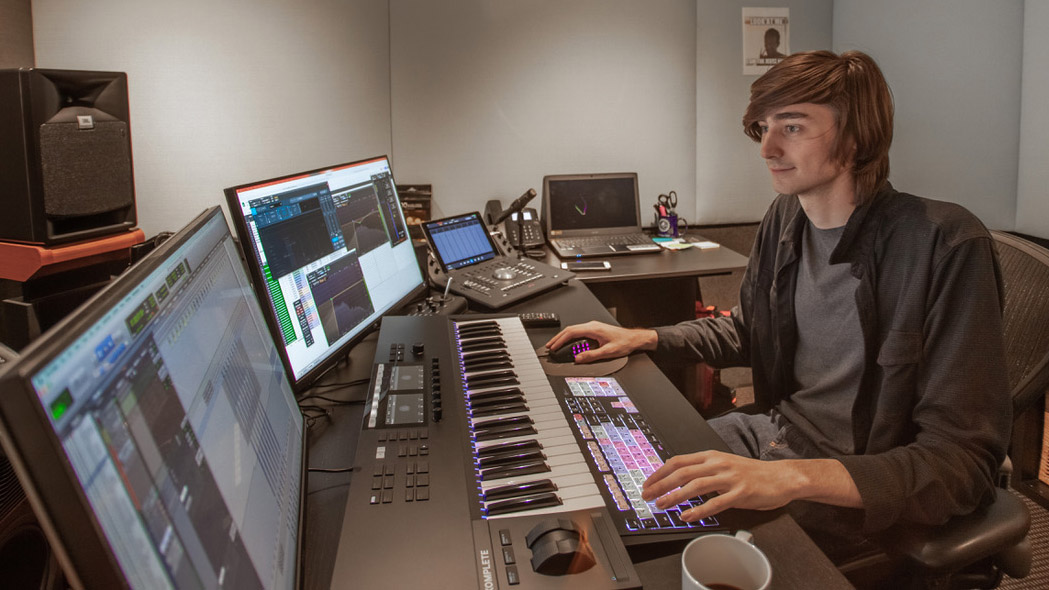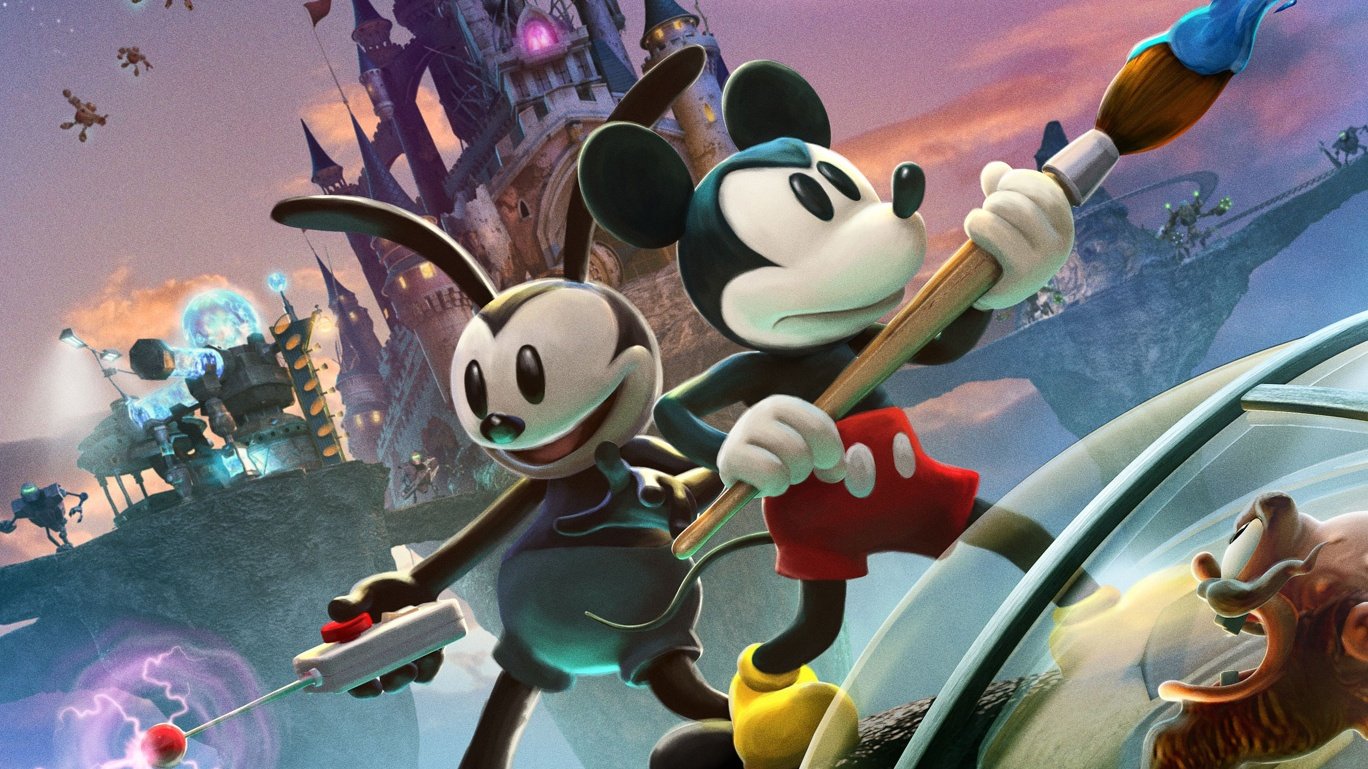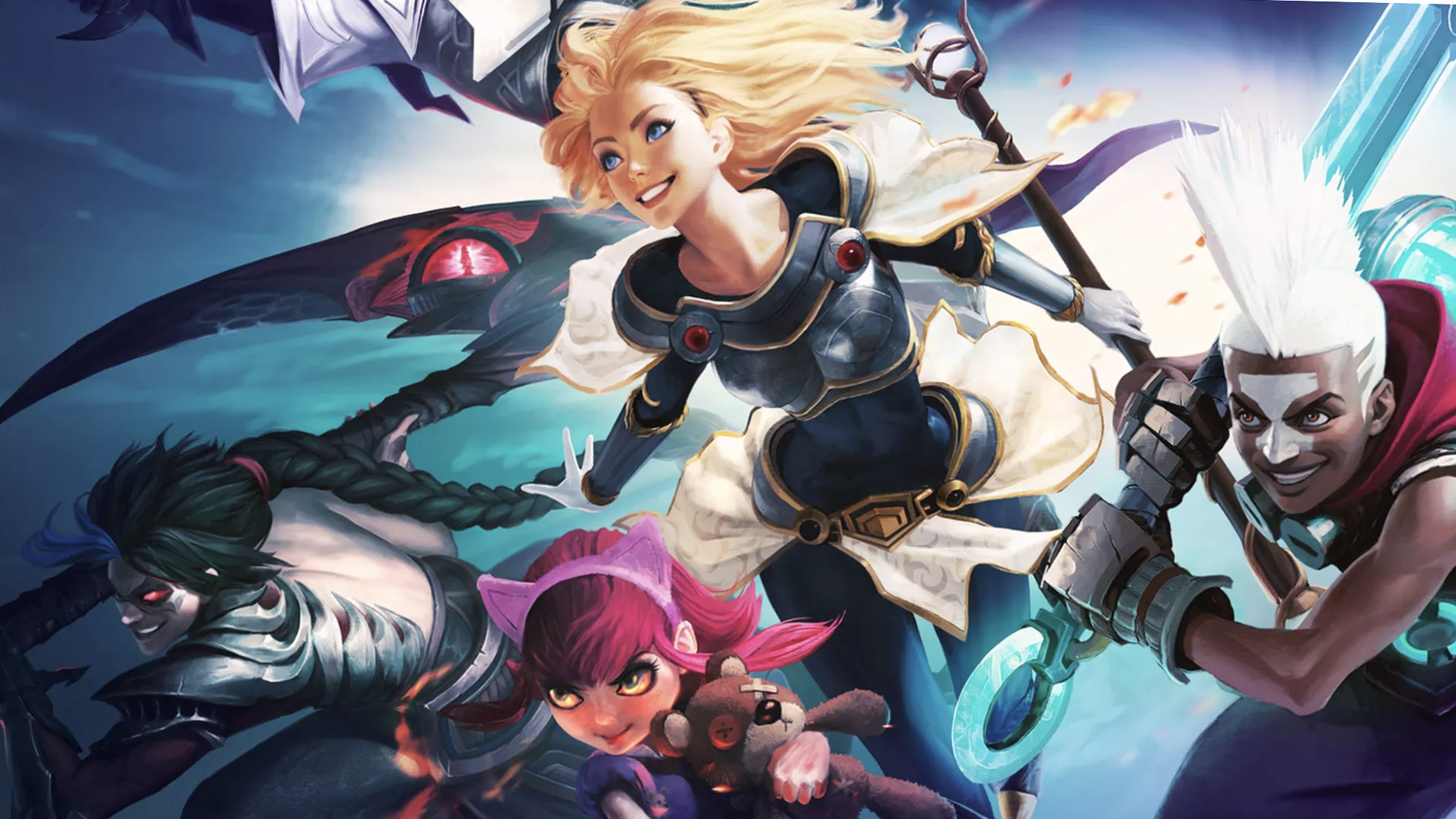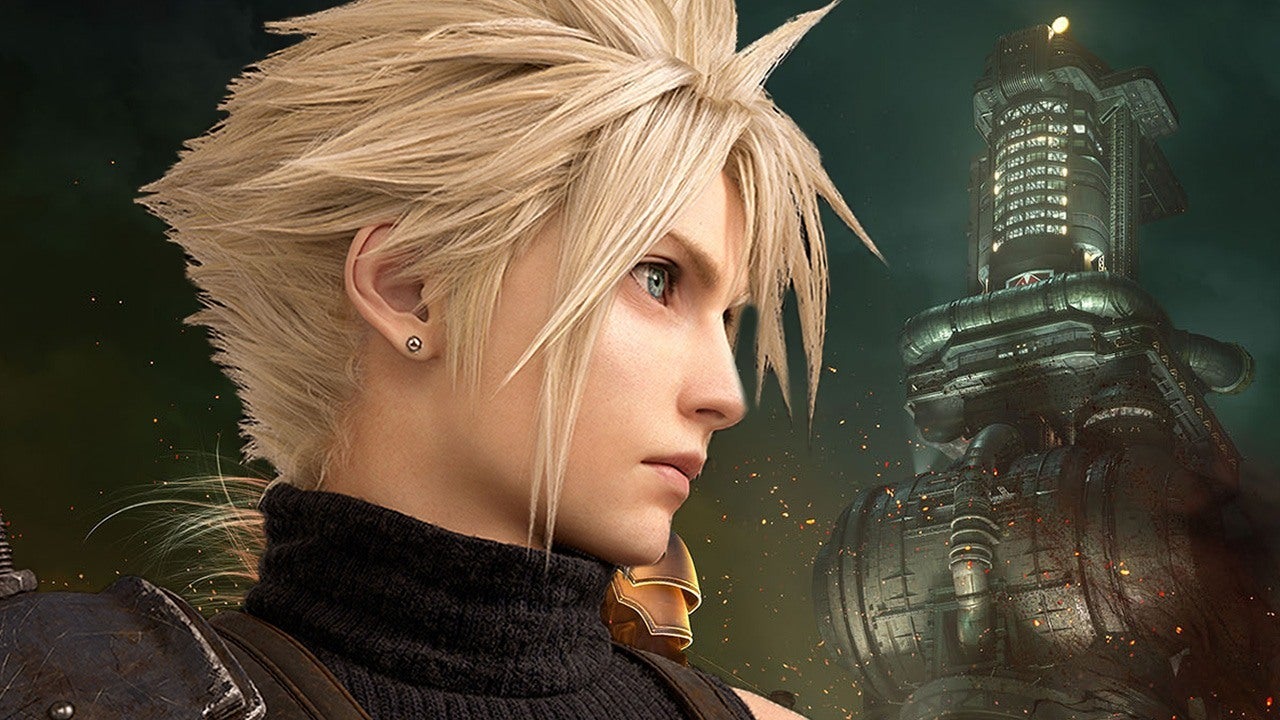So you want to be a... sound designer: from League Of Legends to Final Fantasy, here are Dylan Levitt's career tips

Dylan Levitt is a Senior Sound Designer at Sound Lab, part of the Keywords Studios group. The firm specialises in creating custom sound design for movies, video games, TV shows and location based entertainment.
Sound Lab has been involved in some huge projects including the Final Fantasy, Resident Evil, Gears of War, Fable and Epic Mickey franchises, and with developers including Riot, NC Soft, Tencent and Square Enix.
Dylan's role can be as varied as supplying 'real' sound effects for a film or game character's movements, or imaginary audio, created in software for creatures within fantastical environments.
Here he details how he entered the exciting world of game, TV and film audio, but let's start at the beginning, for those uninitiated in the world of sound design…

Hi Dylan, explain the concept behind sound design…
They are two major philosophies: One goes back to the famous film and sound editor Walter Murch who coined the term 'sound design', which is essentially how the sound in a film develops over time.
He did the sound for Apocalypse Now and would write on paper where certain elements would fade in and fade out and how they would blend, like the scene with the ceiling fan turning into a propeller.
Want all the hottest music and gear news, reviews, deals, features and more, direct to your inbox? Sign up here.
On the other side of that there is Ben Burtt at Skywalker Sound, purely coming up with things that don't exist in our world – ear candy and things that sound awesome. It's not just a metal clank, it's a metal clank that you put through a couple of effects boxes, then layer it with a door slamming and a fire woosh so creating this huge, awesome thing.
That is using sound over time to tell a story and making ear candy. Those are the two different philosophies that you can blend or have more of one than the other.
When did you become interested in sound design?
As a high school student, I was a theatre techy doing lighting and sound. I found a Sound Design program at The Savannah College of Art and Design. It was specifically for sound in movies, but they also had a Sound For Games program and I thought, 'that's what I need to do'.
We did dialogue editing, effects editing, event sound design… They had intro through advanced courses, even courses on the history, all the way back to early human communication and the history of the various companies that have built our industry. I got my undergraduate degree and then I also got a master's degree which was more focussed in game audio, VR and that world.
After, I went straight to work for Sound Lab and moved to LA when Sound Lab was a part of Technicolor. We've now been a part of Keywords for three years which owns facilities around the world for voiceover and game localisation and testing, which is a huge part of its business, and we're its sound design focussed group.

Playing the game is a huge part of knowing what to design for it.
How did your career progress when you started at Sound Lab?
I started out as an assistant, mostly organising our server and sound library, quality-controlling stuff that went out to clients. As I was able to show my skills to [renowned Hollywood sound designer] Scott Gershin, they gave me more and more editing jobs which was super helpful as it made me very, very organised.
Consequently I'm able to turn quicker than some of my peers because I know the whole process of how everything comes in and exactly how we deliver to the clients – it's a good place to start.
Now you are a senior sound designer, what does a typical project entail?
It's different for every project. With a game, we can be involved at a very early stage and we're integrating into their game engine and submitting ideas. We might have budget to do sketches where we make a video capture of some early animations and work against that, or even get involved before they've had a chance to dump any art into the game – they might just have a very early sketch.
We like to be a part of the project as early as we can, but sometimes we are brought in close to the end and get asked to do things very late on, where a client might say, 'here's some video, please put sound to it as quickly as possible'!
So you will be playing a game and literally filling it with sound?
That is very much a part of it. You've got to play the game and you've got to know the game. I'm working on one now where I've been playing it solo in a test world for a while but am now playing it with other players.
As the game progresses and we are able to play with other people, it becomes super insightful and makes a lot more sense. They [the game developers] will sometimes build us a 'test room', like we had one game where they built a world for us that was every imaginable surface in a line so you could walk on the grass and then the snow, mud and dirt and hear as it transitions. So, yes, playing the game is a huge part of knowing what to design for it.
What is the main difference when doing sound design for a film?
Working on a film the process is a lot more 'known'; it's usually pretty straightforward. You start getting rough cuts in from the picture department and then you start getting reels and there's a script. It's a very regimented process.
Games are getting more cohesive in that way but they have a lot more variation in how they come together. It's non stop where as with a film it goes from a preproduction to production to post production to release.
Tell us about how you come up with sounds; we're guessing you record a lot!
Most of us sound designers have a couple of mics and recorders at home, and have friends who go out and record all the time.
Part of the job is to maintain your own library of recordings which is constantly growing either by acquiring weird things you hear in your house or you might get a couple of friends together, go out for the weekend and record.
Then when you get a really big project that you're going to be on for a while, like a big film project, there is budget and dedicated time to go out and get specific sounds.

If they want to steal my job they just have to do it and do it a whole bunch...
So that is your first sound design definition, what about the second, creating the 'ear candy'?
For us, because all of our studio rooms are in between the worlds of film, television and games, we're all working on Pro Tools HD systems. But Reaper is also very popular in the game world – it does super-powerful, amazing things. We also use Soundminer which is our library database software.
We have a standard set of plugins for all our rooms and then people bring their own iLoks in with some crazy stuff they have worked with at home. I love [Native Instruments] Kontakt which is super-powerful for sound design.
Whenever I know I'm going to be working on this one creature for maybe two weeks, I'll take a couple of days at the beginning, put a whole bunch of different samples of things I think could work well together on a keyboard patch, and mingle them together to create a performance and figure out my creature that way.
The iZotope Creative Suite has also been amazing. We used Ozone on a lot of Foley mastering stuff and have switched over to using Neutron 3 as it is very much effects focussed.
What advice would you give anyone wanting to steal your job?
*Laughs* If they want to steal my job they just have to do it and do it a whole bunch. Listen to what is out there and what's being done. Constantly compare yourself. This can be hard but listen to your stuff against other stuff, like I have a Pro Tools session of clips, little moments in game or in film that just sound awesome.
Early on when I was looking for gigs and making my own demo cuts I was constantly checking: 'does what I'm doing hang out with all this? Is it up there, does it whoosh and explode and have the right emotional impact?'
You've gotta do it, over and over. And learn tricks, like knowing: 'if I take this sound and put it through this effects unit it equals this' or 'here are two sounds that I know that when I combine them they will do this'.
So almost like having a signature sound. Do you recommend having a show reel too?
Pretty common in the industry is a test that we give almost all of our new hires. We send them a one-minute video with a whole bunch of different things in it, like there's a soldier and a big alien comes through the door and he's rolling and they're shooting at him and he roars. So it's a quick one-minute test, like, 'okay, can you do sci-fi with soldiers and creatures?!'.
Having your own reel is great, but if it's just like a 'walk and talk' TV drama and you want to work at somewhere like Bungie, they are going to want to hear more, so they'll send you a test. It gives you an opportunity to really show them: 'hey this is me going all out'.
Finally, what projects have you worked on that you are most proud of?
For me as a gamer, I've been pretty happy to be a part of League Of Legends – to even touch that game in a small way has been really cool. We did the Final Fantasy opening cinematic sequences and every time we get anything from [FF developer] Square Enix, it's exciting.
Andy has been writing about music production and technology for 30 years having started out on Music Technology magazine back in 1992. He has edited the magazines Future Music, Keyboard Review, MusicTech and Computer Music, which he helped launch back in 1998. He owns way too many synthesizers.
